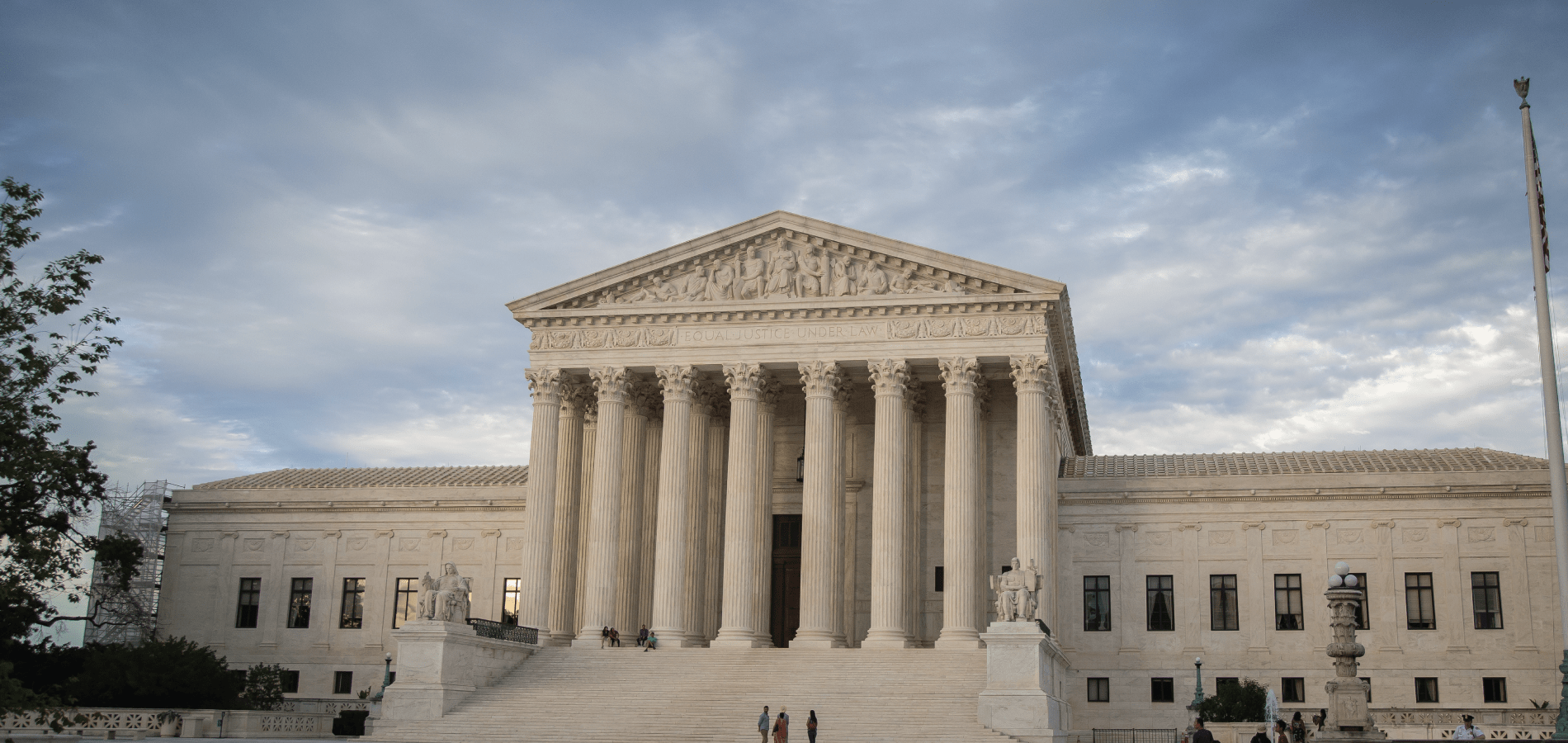Today, people across the United States are commemorating the end to American slavery. Juneteenth Day—a portmanteau of “June” and “nineteenth”—is the oldest known celebration of African-American emancipation. Though truly the date of slavery’s end in Texas, the holiday has been generalized throughout the United States to honor the end of slavery in general. Recognized by 45 states as a special day of observance, Juneteenth is celebrated with readings of the Emancipation Proclamation, the singing of traditional songs, cookouts, historical reenactments, fairs, parties, and more.
Celebrate this turning point in U.S. history by exploring HeinOnline’s completely free Slavery in America and the World: History, Culture and Law which has brought together for the first time all known legal materials on slavery in the United States and the English-speaking world.
Slavery in America and the World: History, Culture and Law
Edited by American legal historian Paul Finkelman, this database includes the following and more:
- Every state statute passed by every colony and state on slavery
- Every federal statute dealing with slavery
- All reported state and federal cases on slavery
- Hundreds of pamphlets and books which defend, attack, or analyze slavery
- Every English-language legal commentary on slavery published before 1920, including many essays and articles in obscure, hard-to-find journals from all over the world
- Many modern histories of slavery
- All modern law review articles on slavery
Wondering why this incredibly valuable collection is free to access? Given the crisis revolving around race relations in America, the Hein Company realized that a unique opportunity existed to make a positive impact in its community, profession, and hopefully, beyond. With complimentary access to these documents, a much larger audience now has an opportunity to learn more about the history of slavery and the pain of racism. It is the Hein Company’s hope that by using this database, librarians and students will become leaders in opening an informed and positive dialogue regarding American race relations. Read more about the Hein Company’s decision here.
Register for your free access today by clicking the button below.
The First Juneteenth
On September 22, 1862, President Abraham Lincoln issued the Emancipation Proclamation, declaring that all slaves in rebelling Confederate states were to be freed. Due to its wording, the proclamation affected only ten states, excluding border slave states (Maryland, Delaware, Kentucky, and Missouri) and Union-occupied Tennessee, southern Louisiana, and southeast Virginia.
Easily view the Emancipation Proclamation and relevant documents in HeinOnline’s Slavery in America and the World database. From the home page, select the subcollection entitled All Titles. Click on the letter “E” under the “Browse by” options and scroll to find the Emancipation Proclamation.
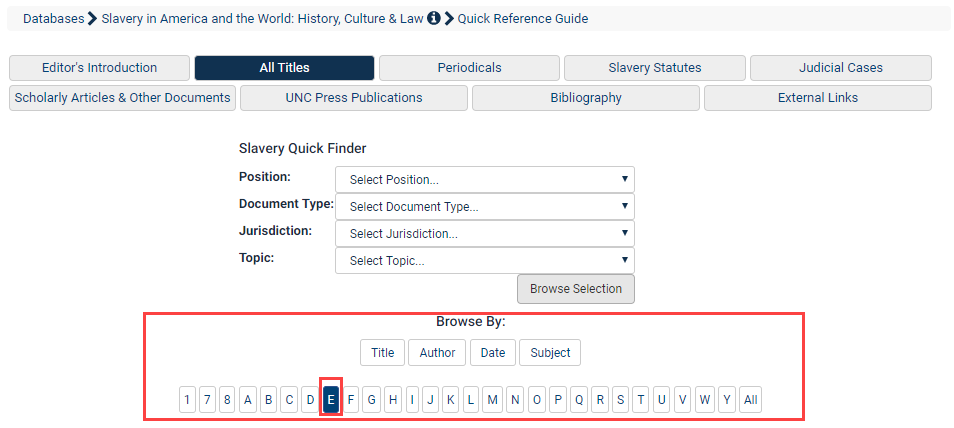
Though considered a hallmark of positive change in the United States, the Emancipation Proclamation freed only some of the slaves in the country. Even states that were affected by its wording did not fully adhere to the proclamation. With few Union troops in Texas, for example, the proclamation went largely unenforced and even unheard of by Texan occupants. As a result, many slaveholders traveled to Texas during the war, bringing their slaves with them and ultimately increasing the state’s enslaved population to an estimated 250,000 people by 1865.
General Robert E. Lee surrendered his Confederate troops on April 9, 1865, but the news didn’t reach Texas until a few months later. On June 18th, two thousand Union soldiers arrived to occupy Galveston, Texas, headed by General Gordon Granger. The next day, on June 19th, General Granger announced “General Order No. 3,” formally announcing the end of the Civil War and an end to slavery in Texas.
In December of the same year, the Thirteenth Amendment was ratified by the required number of states to abolish slavery throughout the country. Users can find this amendment, as well as the entire U.S. Constitution, in HeinOnline’s World Constitutions Illustrated database.
From the home page, select “United States of America” from the blue drop-down box at the top of the country list. Click “Constitutions and Fundamental Laws” and then “Constitution of the United States of America” to view the “Basic Reference Editions of the Constitution.” Choose the most current edition (2016) and scroll to find the Thirteenth Amendment.
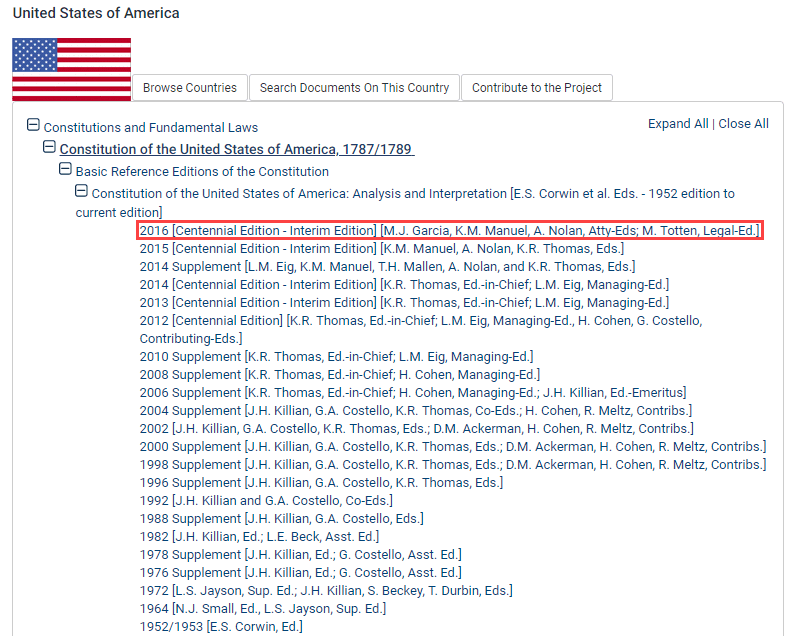
A year after the June 19th announcement, a group of freed African American men organized the first Juneteenth celebration. Later, in the 1870s, freedmen across Texas raised $800 (today, more than $16,000) to purchase four acres of land in Houston. Designating the land as Emancipation Park, the site was used primarily to host Juneteenth celebrations until it was converted to a municipal park in 1918. Other parks in Texas were established from similar pooling of funds, including Booker T. Washington Park in Mexia and Emancipation Park in Austin.
Using HeinOnline’s Slavery Database
Researching within the Slavery in America and the World database couldn’t be easier with the Slavery Quick Finder Tool. Each document in the database has been assigned a position on slavery, a document type, a jurisdiction, and a topic. Simply navigate to the All Titles category of the database to view the tool.
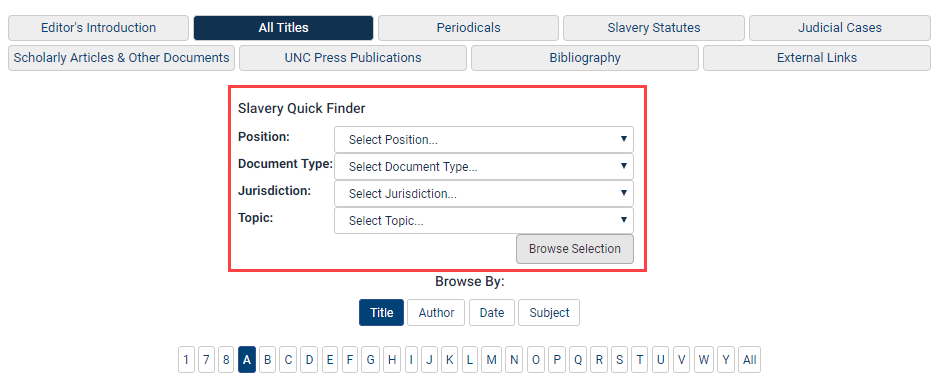
The categories to which documents have been assigned are broken down as follows:
- Positions refer to the document’s stance on slavery—options include anti-slavery, pro-slavery, not applicable, and any position.
- Document Types include bibliographies, book reviews, legal documents, letters, poems and songs, slave narratives, sermons, speeches, treatises, and more.
- Jurisdictions list various countries, continents, and the world. Note: The U.S. is categorized as “United States,” “United States – Northern,” and “United States – Southern.”
- Topics include a number of subjects related to slavery, including “Abolition,” “Civil War,” “Colonization,” “Former Slaves,” and much more.
For example, to search for documents discussing Abraham Lincoln, his stance on slavery, and the events leading up to his Emancipation Proclamation, users can construct a search under the following criteria:
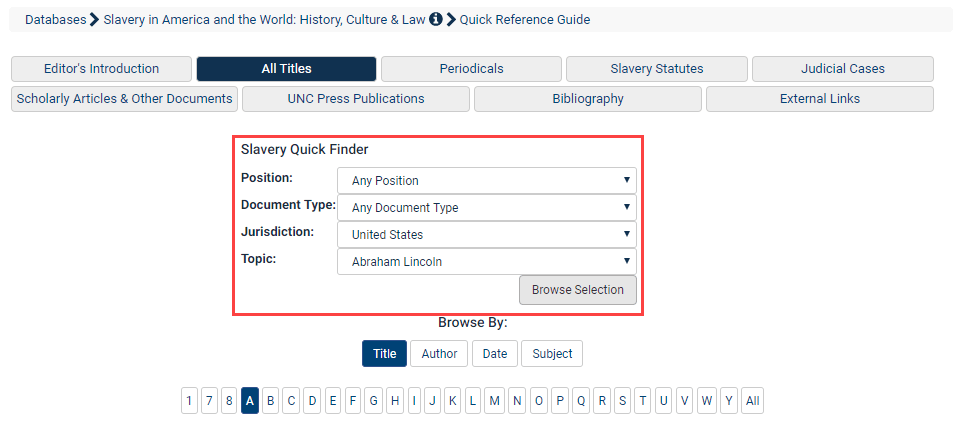
Relevant titles within the results include:
- Abraham Lincoln: Complete Works: Comprising His Speeches, Letters, State Papers, and Miscellaneous Writings
- Abraham Lincoln: The Evolution of His Emancipation Policy – An Address Delivered before the Chicago Historical Society
- Facts and Falsehoods concerning the War on the South, 1861-1865
- History of Abraham Lincoln, and the Overthrow of Slavery
- Memoir of Abraham Lincoln, President Elect of the United States of America, His Opinion on Secession, Extracts from the United States Constitution, &c.
Along with this handy tool, users can find periodicals, slavery statutes, judicial cases, scholarly articles, and UNC Press Publications in the other subcollections of the database.
Spend this Juneteenth Day researching U.S. and world slavery for free. You’ve got the database. You’ve got the instructions. No excuses.
HeinOnline’s Social Justice Suite
Loving this whole “free database” thing? Check out HeinOnline’s Social Justice Suite.
To honor our core value of corporate citizenship, Hein offers three databases free of charge to its core American and international subscribers, and to the libraries of any other interested organizations or institutions:
- Slavery in America and the World
- Gun Regulation and Legislation in America
- Civil Rights and Social Justice
Register now for perpetual complimentary access to the entire Social Justice Suite. We hope that in making these materials accessible to all, we can help foster knowledge, facilitate civil discourse, and encourage action for the betterment of our nation
Like what you see? For more great content, smash that Subscribe button in the upper right-hand corner of this post.
Don’t forget to connect with HeinOnline on our social media platform: Facebook, Twitter, Instagram, and YouTube.


